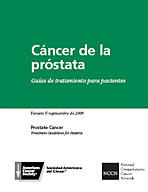June 21, 2007—A novel method for combining Taxol (paclitaxel) chemotherapy and Herceptin (a monoclonal antibody) to create a treatment for advanced prostate cancer has been developed by a doctoral candidate in pharmacy at the Hebrew University of Jerusalem.
Present treatments for metastatic prostate cancer (cancer cells that spread to other parts of the body) include hormonal therapy, chemotherapy and radiotherapy, which frequently have serious side effects.
The HER2 receptor is over-expressed in some prostate cancer cells. Herceptin (trastuzumab) binds specifically to HER2. Herceptin is used to treat breast cancer but so far no clinical data indicates that this antibody would provide any relief for prostate cancer patients.
Goldstein has shown that attaching Herceptin (trastuzumab) molecules to the surface of oil droplets in nanoemulsions made possible the targeting of such droplets to cells over-expressing the HER2 receptor.
He coupled trastuzumab with emulsions containing the chemotherapy drug paclitaxel-palmitate (a form of pure Taxol) and tested the combination in laboratory tests on cancerous prostate cells and on mice with induced prostate cancer.
Taxol (paclitaxel) exhibits a wide spectrum of anti-tumor activity in humans but has a couple of limitations. Taxol is not very soluble in water, so an additive is necessary to make it soluable for injection into patients. However, the additive (Cremophor EL) is known to induce hypersensitivity reactions in some patients, either immediately or over time. Therefore, novel methods are needed to allow for delivery of effective concentrations of paclitaxel over extended time intervals while minimizing toxicity.
Goldstein has shown that his emulsion compound did not cause a hypersensitive reaction upon injection and even yielded better results than known drug treatments while inhibiting tumor growth substantially.
Targeting drugs to disseminated prostate metastases is one of the most challenging goals in prostate cancer therapy. Drug carriers -- nanoemulsions, liposomes (fatty droplets) and nanoparticles -- have shown great potential as delivery systems for an increasing number of active molecules. Although capable of enhanced accumulation in the target tissue, these carriers cannot achieve their missions unless specific binding agents are attached to them which will ensure that they succeed in attaching to the targeted tissues.
Goldstein cautions that this inhibiting activity of tumor metastases growth was not absolute and that while the results are encouraging, there is a need for further research to combat metastatic prostate cancer. Prof. Benita added that he hopes clinical trials using the new method can begin in about two years.
Goldstein's work was published earlier this year in the journal Cancer Research:
Anti-HER2 Cationic Immunoemulsion as a Potential Targeted Drug Delivery System for the Treatment of Prostate Cancer
Danny Goldstein 1 , Ofer Gofrit 3 , Abraham Nyska 4 and Simon Benita 1 ,21 Pharmaceutics Department, The School of Pharmacy; 2 David R. Bloom Center for Pharmacy, The Hebrew University of Jerusalem; 3 Urology Department, Hadassah-Hebrew University Medical Center, Jerusalem, Israel; and 4 Sackler School of Medicine, Tel Aviv University, Tel Aviv, Israel
Danny Goldstein received the Barenholz Prize for Creativity and Originality in Applied Research for his work. The award, named for its donor, Yehezkel Barenholz, the Dr. Daniel G. Miller Professor of Cancer Research at the Hebrew University-Hadassah Medical School, was presented recently during the 70th meeting of the Hebrew University's Board of Governors.



